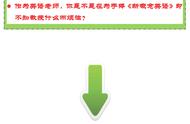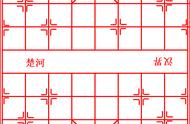介词是一种用来表示人物、事件之间关系的词。
一、方位介词
(一)at, in, from
at和in指在某处。at后通常接相对较小的地点。in后通常接相对较大的地点。from指来自某处。如:
1.They arrived at our school yesterday.
2.Our teachers arrived in Beijing this morning.
3.Jane is from the U.S.A.
(二)in, on, to, off
in, on和to常用于表示两个地方的位置关系。in表示在某一范围内部。on表示接壤。to表示不在范围内,即二者之间有距离,也不接壤。off通常表示两地的距离。如:
1.Shanghai is in the east of China.
2.Hubei is on the north of Hunan.
3.Australia lies to the south of China.
4.They arrived at a house off the main road.
(三)across, through
across和through都有“从一边到另一边”的意思。across 主要指“(从某物的表面上)横过”。through主要指“(从某物的空间内)穿过”。如:
1.Be careful when you walk across the road.
2.The old man went through the forest.
(四)between, among, of
between表示“在两者之间”,可构成between ... and短语。among表示“在三者或三者以上之间;……之一”。of表示范围,“在……中”。如:
1.The teacher was standing among a group of students.
2.There is a long bridge between the two cities.
3.The workers will build a museum between the cinema and the park.
4.There’s snow at the top of the mountain.
(五)above, over, on & below, under & against
above表示“在……上方;在……之上”,不一定在正上方,反义词为below。 over表示“在……的上方”,强调位于物体正上方,反义词为under。 on表示“在……上”,强调两个物体间有接触。against表示“倚;靠;撞”。如:
1.A plane is flying above us.
2.I could hear the noise in the yard below my window.
3.There are many books on the shelf.
4.There is a bridge over the river.
5.There is a ball under the teacher’s desk.
6.Bob sat down against a tree.
二、时间介词
(一)at, on, in
at常用在具体的钟点之前。on常用在星期、具体的日期以及某天的上午、下午、晚上前。in常用在年、月、季节或泛指的上午、下午、晚上前。如:
1.We often have supper at seven o’clock.
2.Bruce usually does some reading on Sunday afternoon.
3.The English speech contest is on October 19th.
4.My grandparents take exercise in the morning.
5.We want to go to Beijing in November.
(二)in, after
in和after都可表示“在一段时间以后”,但in常与一般将来时连用,after与将来时态连用时,后面只能跟表示时间点的词语。after与过去时态连用时,后面才能跟表示一段时间的词语。如:
1.He will be back in two months.
2.He will arrive after four o’clock.
3.He returned after a month.
(三)during, through
during表示“在……期间”。through表示“从头到尾”。如:
1.We go skiing every day during the winter.
2.We went through the hard time.
(四)for, since
for后跟时间段,since后跟时间点,均可与现在完成时连用。如:
1.My uncle has worked on the farm for ten years.
2.I’ve studied in the school since three years ago.
三、方式介词
by, through, in, with
by和through都表示“通过……方式 / 方法”。in表示“使用(某种语言)”。with 表示“用,使用……”。如:
1.I usually go to school by bike.
2.Mary studies English by listening to tapes.
3.He became rich through hard work.
4.Can you say it in English?
5.He wrote a letter with a pen.
四、其他介词
(一)including,besides,except
including包含,包括。besides 除了……之外(还有)。except除了……之外(不包括)。
(二)with,without
with 和……在一起;具有(品质、特征等);带有;随着。without没有。
(三)for, against, beyond
for支持,还可以表示价格和目的。against反对。beyond超过。
1.for, to
一些动词可带双宾语,当先说直接宾语(表物)时,间接宾语(表人)前可以用for,也可以用to。有些动词与for搭配,如buy/make/cook sth. for sb.;有些动词则与to搭配,如give/send/lend/pass/tell/show/offer/hand/throw sth.to sb.等。
2.for, of
可用于句型“It is 形容词 for/of sb. to do sth.”中。for sb.用于引出动词不定式的逻辑主语,而 of sb.则用在某些具有评价人物行为意味的形容词之后,点明形容词所涉及的对象。这类形容词有kind, nice, good, careful, careless, crazy, foolish, wise, rude, impolite, right, brave等。
(四)in颜色的前面用介词in,表示“……颜色的衣服”。behind sb. 可意为“支持某人”。
(五)on, about
on/about sth.可意为“关于……”。
五、介词练习
(一)根据句意,填入合适的介词。
1.I have played football____a year.
2.Daming has been ill____last Friday.
3.Thanksgiving Day is celebrated____the fourth Thursday in November.
4.My father is going to stay____home next week.
5.In Alaska, the days are long and warm____summer.
6.Don’t worry____me. I’m OK.
7.I often help my mum____housework at home.
8.She began to work____the age of twelve.
9.We are going to play____another team next Friday.
10.I got out of the car, went____a gate and walked along a dark path.
11.Can you return this book____her?
12.It’s polite____her to give the seat to the old man.
13.Congratulations_____the winners.
14.We have English_____half past eight in the morning.
15.She was born_____July, 1999.
16.Books were produced only one_____a time by hand in old days.
17.____my opinion, natural wonders are more exciting than man-made ones.
18.He had to work hard____his own at that time.
19.Cambridge is especially famous____its university.
20.The girl____red is my best friend.
(二)句子翻译。
1.我经常和父母周六去野餐。
2.她刚刚把电话号码写在一张纸上。
3.我爸爸通常在上班的路上买一份报纸。
4.学生们可以学习在家回收再利用的方法。
5.他的照片展示了一个在刮风的夜晚在街道上横冲直撞的人。
6.我正在澳大利亚中心给你们写信。
7.在不久的将来,会有更多的电子书比纸质书。
8.每天傍晚,妈妈都在家浏览杂志。
9.我们可以想象没有纸和印刷术的生活吗?
10.你必须保证你会好好保管这个相机。
练习参考答案
(一)1.for 2.since 3.on 4.at 5.in 6.about 7.with 8.at 9.against 10.through 11.to 12.of 13.to 14.at 15.in 16.at 17.In 18.on 19.for 20.in
(二)
1.I often have a picnic with my parents on Saturdays.
2.She wrote the phone number on a piece of a paper just now.
3.MY father usually buys a newspaper on his way to work.
4.Students can learn ways to recycle at home.
5.His photo shows a person rushing across a street on a windy evening.
6.I’m writing this letter to you in the center of Australia.
7.There will be more e-books than paper books in the near future.
8.Every evening my mother looks through magazines at home.
9.Can we imagine life without paper or printing?
10.You must promise that you will look after the camera well./You must promise that you will take good care of this camera.
,













